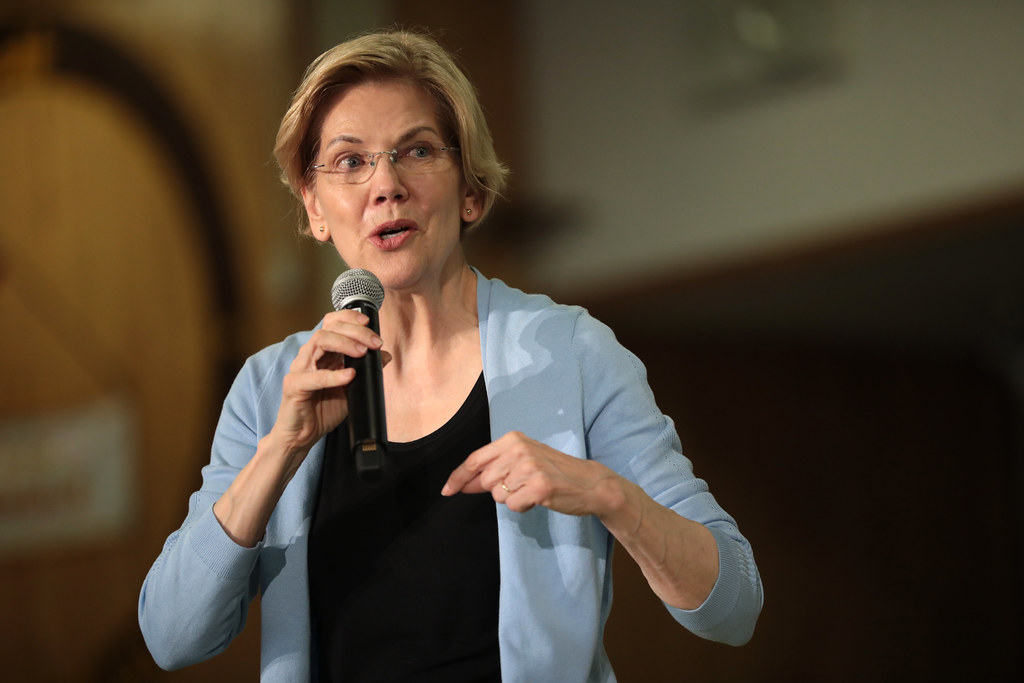
Massachusetts Senator Elizabeth Warren, following her reelection victory over Republican challenger John Deaton, is set to become the leading Democratic member of the United States Senate Banking, Housing, and Urban Affairs Committee starting in 2025. This announcement was made through a notice from Sen. Warren’s office on November 13. She will take on the role of ranking member in opposition to the Republican majority on the committee, stepping in for Ohio Senator Sherrod Brown, who was not reelected on November 5.
Shifts in Committee Leadership
Senators Warren and Brown have been known as prominent critics of cryptocurrency within the U.S. Congress. However, Senator Warren has not indicated whether she will maintain this critical stance towards cryptocurrency in the forthcoming session. Her new position signals a significant shift in the committee’s dynamics, especially with the projected Republican control over the Senate.
In her statement, Senator Warren emphasized the importance of Democratic leadership in addressing the economic challenges faced by middle-class and working families. Her priorities include making housing more affordable and protecting consumers from the predatory practices of private equity firms and special interests. She expressed a strong commitment to advancing legislative solutions that would benefit Massachusetts residents and Americans nationwide.
Influence of Cryptocurrency on Election Outcomes
The reelection campaign of Senator Brown saw significant opposition from cryptocurrency-backed political action committees (PACs), which collectively spent over $40 million to support his opponent, Bernie Moreno. Paul Grewal, Coinbase’s chief legal officer, remarked on the strategic importance of ensuring that Senator Brown would not return as the committee chair, even if it meant having Senator Warren as the ranking member. The cryptocurrency exchange itself contributed more than $45 million to PACs targeting candidates perceived as anti-crypto.
John Deaton, who has represented XRP holders in legal battles, utilized Senator Warren’s previous statements against cryptocurrencies as a focal point in his campaign. Despite these efforts, Senator Warren secured approximately 59.6% of the vote, according to the Associated Press.
With the Republican party projected to secure a trifecta in the 2024 elections—controlling the House of Representatives, the Senate, and the Presidency—cryptocurrency policy is poised for significant developments. Senator Cynthia Lummis of Wyoming, another influential member of the banking committee, expressed intentions to introduce legislation aimed at establishing a strategic Bitcoin reserve.
| Event or Figure | Detail |
|---|---|
| Sen. Elizabeth Warren | Elected as ranking Democrat on Senate Banking Committee |
| Sen. Sherrod Brown | Unsuccessful in reelection bid |
| Crypto PAC Spending | Over $40 million in support of Bernie Moreno |
| Sen. Warren’s Election Victory | Won with 59.6% of the vote |
| Sen. Cynthia Lummis’s Legislative Plans | Proposal to build a strategic Bitcoin reserve |
Warren’s Leadership on Crypto Policy
The ascendancy of Senator Warren to a pivotal role in the Senate Banking Committee marks a critical juncture for U.S. cryptocurrency regulation. Given her history of skepticism towards digital currencies, her influence could shape the legislative framework surrounding this burgeoning technology. However, the changing dynamics within the Senate, coupled with increasing advocacy for cryptocurrency integration in federal policy, suggest a complex and evolving landscape for crypto regulations. Stakeholders in the crypto industry would need to navigate these shifts strategically, balancing innovation with regulatory compliance.
Featured image credit: Gage Skidmore via Flickr
Follow us for more breaking news on DMR
